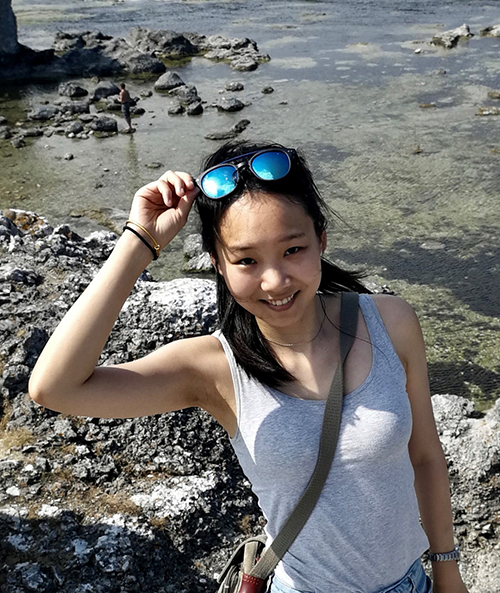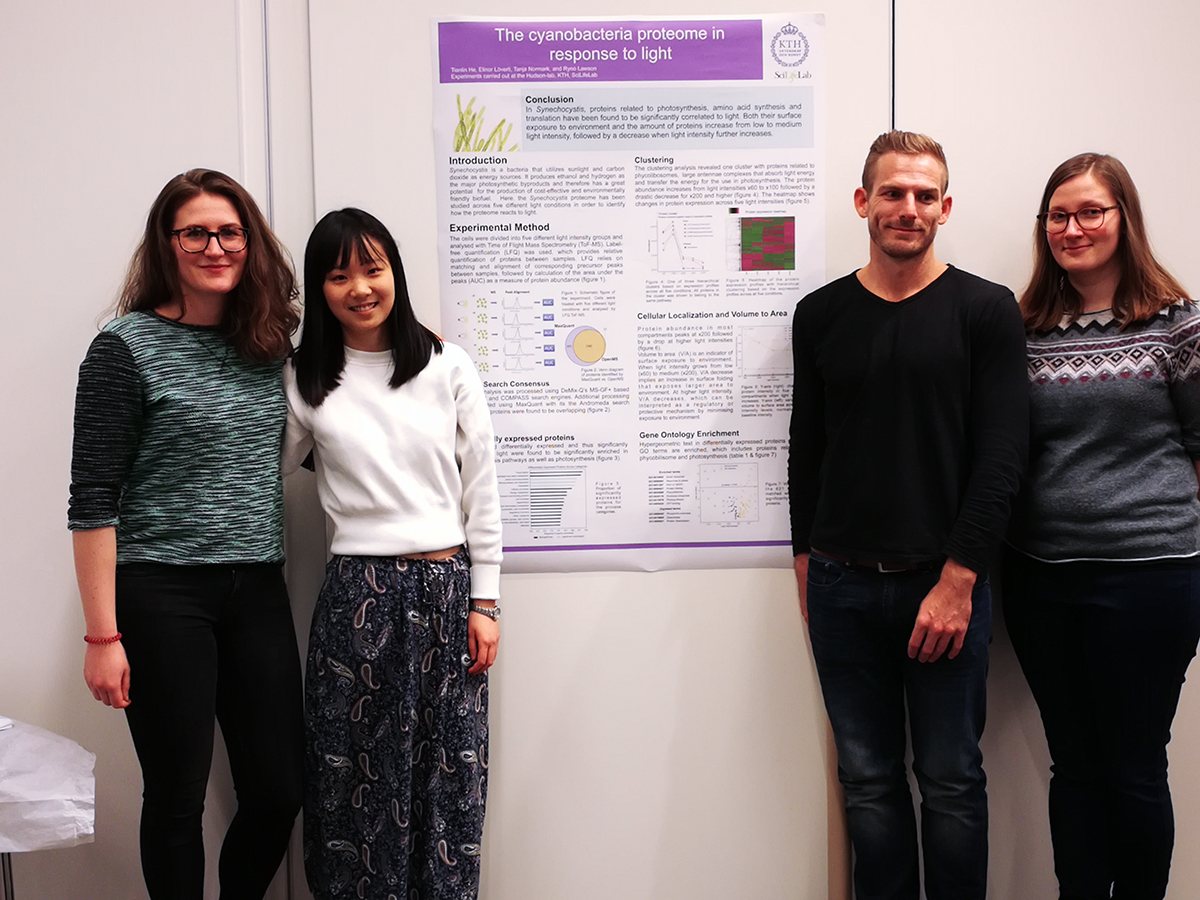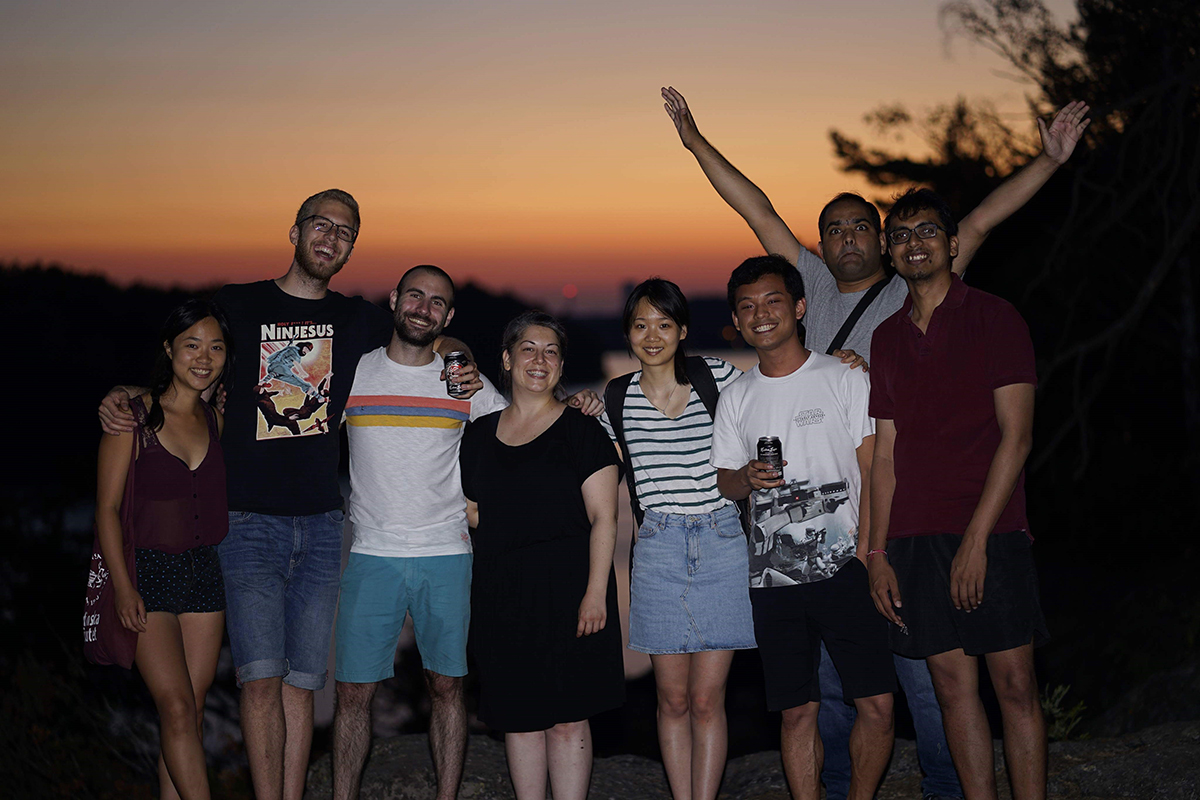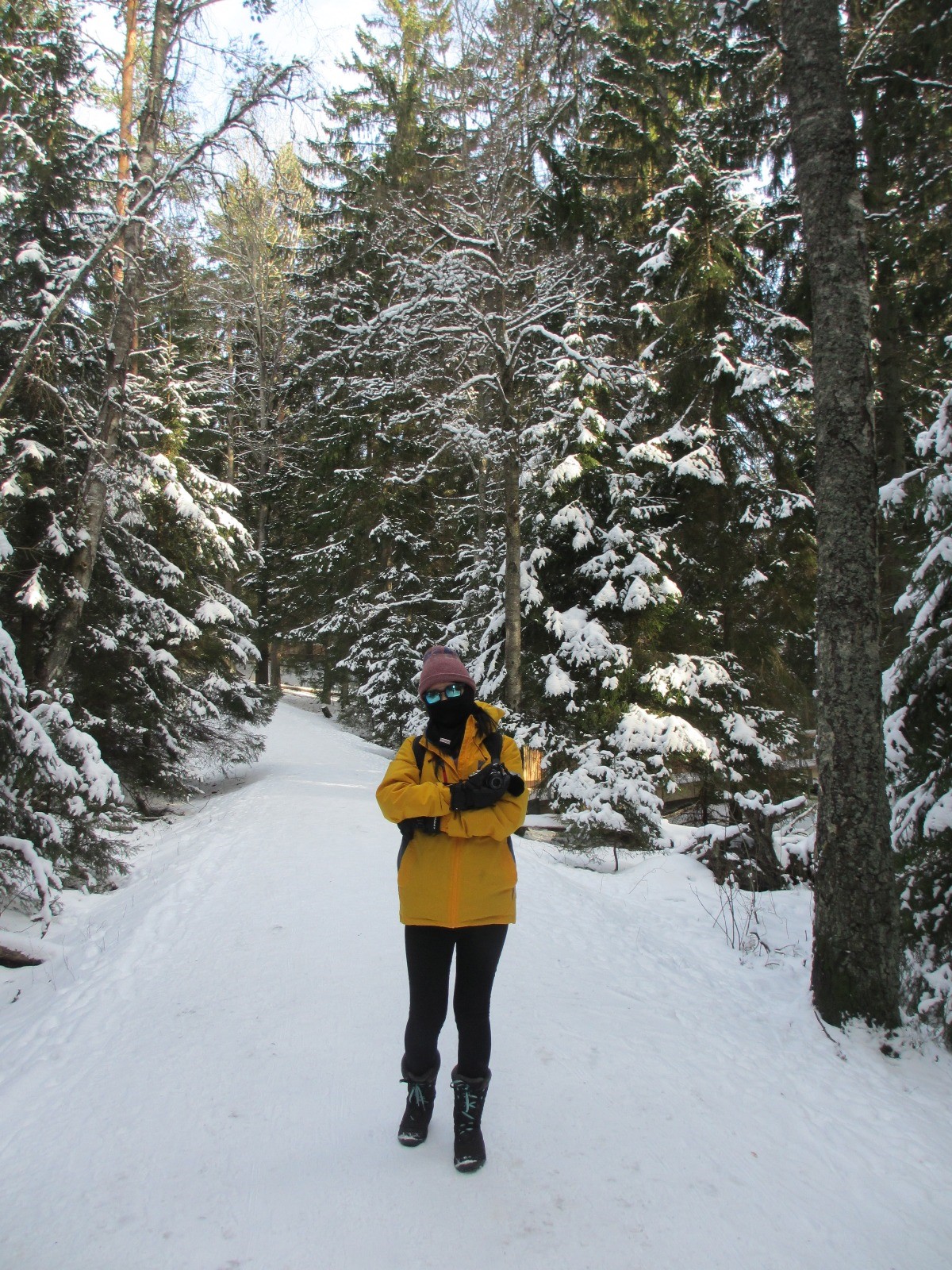Tianlin develops diagnostic tools for cardiovascular and kidney diseases
Tianlin He graduated from the master’s programme in Molecular Techniques in Life Science in 2018. She is now an industrial PhD student in Germany.

Hi Tianlin, what are you working with at the moment?
I am working as an industrial PhD student at Mosaiques Diagnostics and Therapeutics in Germany, affiliated with RWTH Aachen University. An Industrial PhD is a doctoral placement conducted in a company with supervisor(s) from both academia and industry. The focus of my PhD project is to develop diagnostic tools for cardiovascular and kidney diseases.
What can a regular day look like at your job?
It is indeed a “regular” and healthy day! Every day I cycle to my company (through a forest) for 40 minutes, work in front of computer for 7-8 hours , and then cycle to German class (alongside a river) for 45 minutes, and finally head home at 7:30. Those 7-8 working hours typically include intensive data analysis, journal clubs, teleconferences, and of course tea breaks with my colleagues.
Have you worked with anything else since you graduated?
Immediately after my graduation I was lucky to obtain a three-month lab position through my master’s thesis supervisor; this meant I had sufficient time to find my first job and to cover my expenses during the time!
Why did you choose this programme at KTH?
The resources and freedom. My master’s programme is jointly organized by three universities, with different specializations in technology, informatics and medical research. It means that as students we are entitled to choose and utilize the best resources from all three schools, and to decide in which field we want to specialize. And there is another not-so-academic facet: like many, I am always curious about the mystery of success behind Sweden, a social democratic Idyll.

Are there any insights you acquired during your studies that have been particularly useful for you in your career?
Definitely. In contrast to my previous education in China, education in Swedish universities is more heuristic and project oriented. It means that the classes are more interactive; presentations and group assignment are an inalienable part of almost every course! Although I found them challenging in the beginning, the communication, problem-solving and self-management skills that were embedded during these two years have been extremely helpful to my career.
What were the best aspects of your studies at KTH?
The people: I had the best classmates and friends, and teachers ever. At KTH I met an enthusiastic group of young people who had the same expectations and interests as me. The universities have the most qualified faculty staff, who above all are really concerned about equality and care for the welfare of the students.

What is your best memory from your time at KTH?
They are countless beautiful memories that cannot be ranked. There are afternoons spent in the commodious, bright KTH library hall; summer lunch breaks on the Karolinska lawn, 00:01 at midnight after submitting a month-long machine learning project, battling against thick snow on the way to lectures … these are the moments when I strived for my future goal, but still enjoyed the passing of time.
What are your plans for the future?
My immediate plan is to get my PhD within three years and become a real expert in biomedical data analysis. I would say it’s too early to set a concrete timetable. Instead of moulding myself to a narrow discipline, I hope these three years will give me a broader vision and the spark of inspiration.

What would you say to a student thinking of applying for this programme?
There are, of course, times when frustration and pressure can be high due to the workload in the programme, and there are of course peers who will be smarter and work even harder. But I can guarantee that in this programme you will spend two fulfilled years; no matter whether your ambition lies in academia or industry, you will find the necessary skills here.
